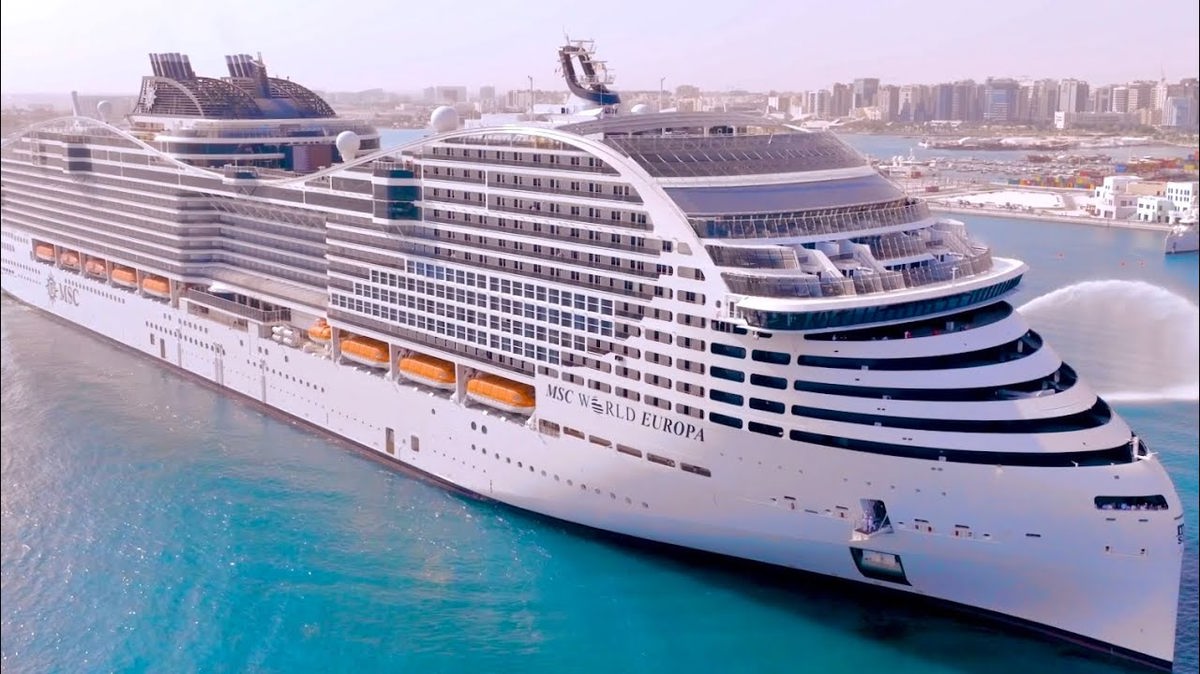Green shipping projects could be delayed by lack of banking investments – EDF
Reluctance to issue second-ranked mortgages for retrofit financing and uncertainties about future bunker fuel choices could typically stifle bank investments in green shipping projects, US-based non-profit Environmental Defence Fund (EDF) said.
 PHOTO: MSC's LNG fuel cell-powered cruise ship MSC World Europa. MSC Cruises
PHOTO: MSC's LNG fuel cell-powered cruise ship MSC World Europa. MSC Cruises
The UN Conference on Trade and Development estimated that decarbonising the global shipping industry will require $8-28 billion/year in investments and an additional $28-90 billion/year to develop green fuel bunkering infrastructure.
However, banks might be reluctant to take on the financial risks associated with shipping's green transition, which could stifle investments, EDF wrote in a recent report.
Reluctance to finance retrofits
A significant barrier to investment is that shipowners seeking to retrofit existing vessels to accommodate alternative marine fuels may face difficulties in securing funding because lenders are hesitant to accept a second lien on assets, the report said.
A second lien or second-ranked mortgage is an additional loan over an asset that already has another mortgage. It typically has a higher interest rate and a lower repayment priority than a first mortgage.
“Unlike new vessel purchases, where the vessel itself serves as collateral for the loan, older ships already have existing encumbrances, meaning that there is no first ranked mortgage available to secure the retrofit loan,” EDF explains. “Additionally, banks are less inclined to lend for retrofits due to the smaller loan sizes involved – smaller loans require similar administrative effort relative to larger loans but offer lower returns.”
Retrofit financing is considered "less attractive and riskier" by banks due to the difficulty of obtaining second ranked mortgages for retrofits if vessels are financed with mortgage-backed loans, German commercial banker KfW IPEX-Bank told EDF.
Uncertainty surrounding future fuel choices
“Shipowners are reluctant to dedicate significant capex to cleaner vessels given the higher costs and lower availability of clean fuels,” the report highlighted.
Regulatory uncertainty regarding the timeline and measures for closing the price gap between fossil marine fuels and alternative fuels and technologies dissuades shipping companies from investing in green fuel production and infrastructure, Danish logistics company DFDS told EDF.
“Banks may be reluctant to provide finance to dual-fuel vessels given that those vessels may not start using clean fuels until better bunkering infrastructure is developed,” the EDF said.
The uncertainty surrounding shipping customers' future choices of marine fuels, coupled with the limited availability of zero-emission fuels, can further contribute to banks' reluctance to finance the shipping sector’s green fuel transition, it noted.
And finally, banks could find financing clean vessels is more expensive than conventional ones, according to the report. This could be partly because they are costlier to purchase and operate and partly due to higher capital costs stemming from a lack of historical credit risk data and technological uncertainties.
By Konica Bhatt
Please get in touch with comments or additional info to news@engine.online






